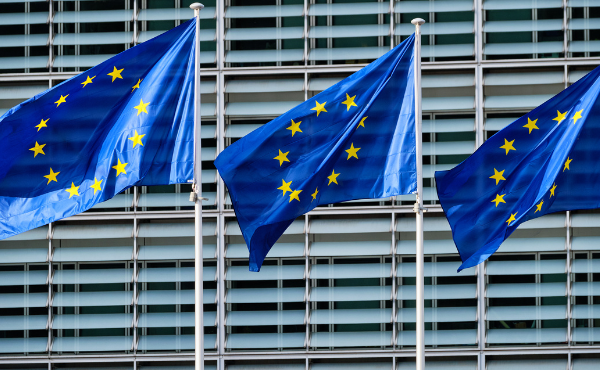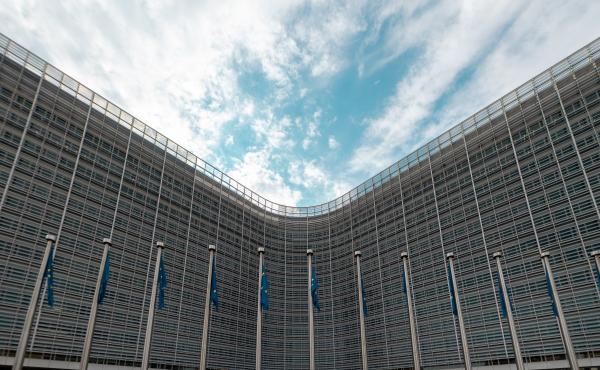
The ECGI blog is kindly supported by

Corporate Sustainability Due Diligence and the Shifting Balance between Soft Law and Hard Law in the EU
In this post, I briefly comment on the proposed Directive on Corporate Sustainability Due Diligence from three different angles. Firstly, I criticise the fact that the proposal defines the due diligence sustainability obligations mainly with reference to the international treaties and conventions concerning the obligations of States as to the protection of the environment and human rights. Secondly, I consider the proposed shift of the corporate due diligence concept from international soft law to EU hard law and analyse the relevant implications. Thirdly, I examine the relationship between the proposed Directive and company law and argue that the Directive’s due diligence provisions mainly belong to the field of public regulation. Moreover, I briefly comment on the relationship between corporate governance and due diligence regulation advocating a rebalancing of them on policy grounds.
Therefore, due diligence includes both preventive measures and remedial actions, which should nevertheless be limited to what is ‘reasonable’ in the circumstances of the case.
1. The proposed Directive foresees obligations for companies that are defined pursuant to the international environmental and human rights conventions listed in its Annex. The relevant definitions raise some concerns given that these treaties and conventions generally impose obligations on the contracting States which are often formulated in general terms. As a result, the precise contents of such obligations for companies may be hard to determine. The case of climate change requirements provides a good illustration. According to Article 15 of the proposed Directive, companies shall adopt a plan to ensure that their business model and strategy are compatible with the transition to a sustainable economy. Companies should include emission reduction objectives in their plan and variable remuneration should be set accordingly. However, the requirements set by international conventions in this area regard all sectors and are global in character, so it is difficult (if not impossible) to derive from the requirements for individual companies, sectors, and geographic areas.
Moreover, corporate due diligence comprises the ‘appropriate measures’ that can achieve the due diligence objectives and are reasonably available to the company. According to the Preamble, the main obligations of the Directive should be understood as ‘obligations of means’. However, the due diligence process not only includes risk management systems and compliance programs but also extends to bringing adverse impacts to an end. Therefore, due diligence includes both preventive measures and remedial actions, which should nevertheless be limited to what is ‘reasonable’ in the circumstances of the case. This contributes to the relative ambiguity of the proposed text which is further highlighted below.
The effects of the Directive would further reverberate across a greater number of companies, as the companies to which the Directive would apply are also accountable for the behaviour of their business relationships in the value chain.
2. The Directive also aims to translate soft law recommendations—set by international organizations like the UN and the OECD—into hard law requirements as to due diligence. However, regulatory provisions should be more specific and clearly defined than their soft law equivalents, also considering that public sanctions and civil liability would apply to violations of the relevant rights and prohibitions. The text of the Directive is for now rather imprecise and broadly formulated. Its ultimate specification would likely occur through national implementation of the relevant rules and/or through secondary legislation which may be adopted at either EU or national level. This may determine greater rigidity compared to international soft law and less homogeneity at EU and international levels.
In addition, the proposed Directive would apply to a vast number of companies that are often much smaller than those to which the soft law instruments presently apply. Moreover, it would cover both companies which are formed in accordance with the legislation of a Member State and companies which are formed in accordance with the legislation of a third country, provided that certain conditions are satisfied (for EU companies: 500 employees and EUR 150 million of turnover). The effects of the Directive would further reverberate across a greater number of companies, as the companies to which the Directive would apply are also accountable for the behaviour of their business relationships in the value chain. These include small and medium-sized enterprises (SMEs) which work either upstream or downstream in the company’s supply chain and would therefore be asked to comply with requirements like those fixed by the Directive.
The cross-border and competitive impacts of the proposed Directive should therefore be carefully analysed. Many EU firms would be subject to it and would also be responsible for their subsidiaries and business relationships which may be in different parts of the globe. This may put the relevant EU firms at a competitive disadvantage with respect to their non-EU competitors. At the same time, a good number of third-country firms would fall under the national rules implementing the proposed Directive. This would reduce the anti-competitive impact of the Directive on EU firms but could also put the EU markets at a disadvantage, to the extent that third country firms may want to shun those markets.
If adequate mechanisms and incentives exist in each corporate governance system, similar cases will occur more frequently and will possibly reduce the need for due diligence regulation concerning sustainability.
3. Except for its provisions on director duties, the proposed Directive mainly belongs to the field of public regulation and aims to make companies internalize the negative externalities that they cause to the environment and society. Banking regulation is similarly justified by the need for firms to internalize the social costs of their activities which may also have systemic impacts. This banking analogy helps to explain sustainability due diligence regulation and the relevance of risk management in the relevant framework. It also justifies the prediction that the rule book on corporate sustainability due diligence, like the banking rulebook, will expand considerably to reach the level of clarity and specificity that companies and sustainability supervisors require.
I would suggest however that policymakers further explore, from a broad public policy perspective, whether and to what extent the complex relationship between corporate due diligence regulation and corporate governance could be rebalanced in favour of the latter. Indeed, many firms increasingly reduce their negative impacts thanks to technological innovation, changes in their business models, and growing attention to social values, often generating substantial ‘shared value’ (which is understood as the sum of shareholder value and social value). If adequate mechanisms and incentives exist in each corporate governance system, similar cases will occur more frequently and will possibly reduce the need for due diligence regulation concerning sustainability. I would therefore suggest a gradual and flexible approach to regulation of corporate sustainability due diligence, starting from the business sectors and companies which are more in need of regulation given their systemic relevance and experimenting with the implications of a switch from soft law to hard law in this area.
Guido Ferrarini is Emeritus Professor of Business Law, University of Genoa
The ECGI does not, consistent with its constitutional purpose, have a view or opinion. If you wish to respond to this article, you can submit a blog article or 'letter to the editor' by clicking here.
An initial version of this article ‘Corporate Sustainability Due Diligence and the Shifting Balance between Soft Law and Hard Law in the EU’ by Guido Ferrarini was published in the Oxford Business Law Blog, the University of Oxford on 14 April 2022.
This post is published as part of a new OBLB series on ‘The Corporate Sustainability Due Diligence Directive Proposal’.




